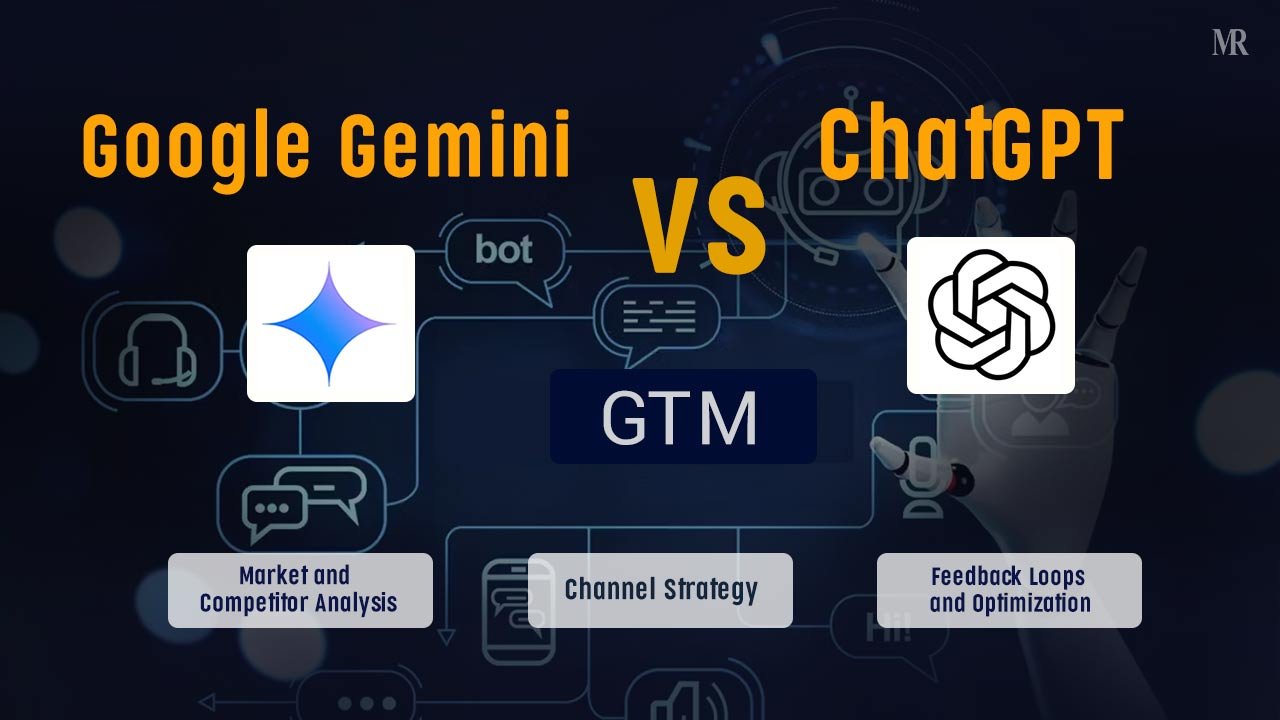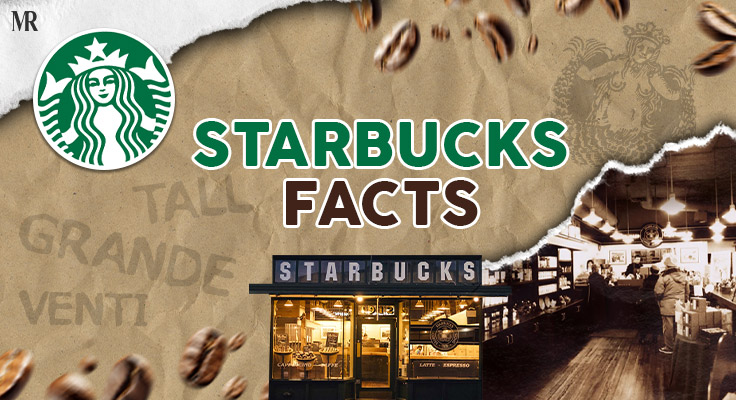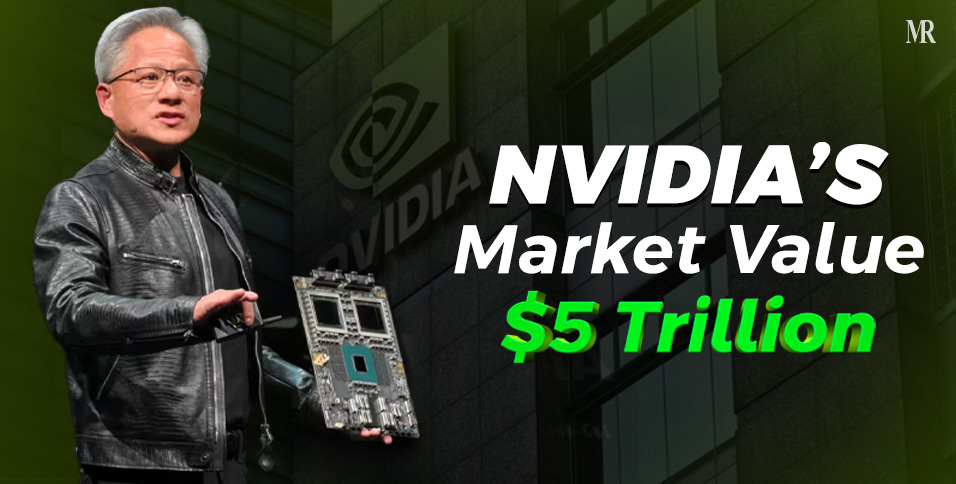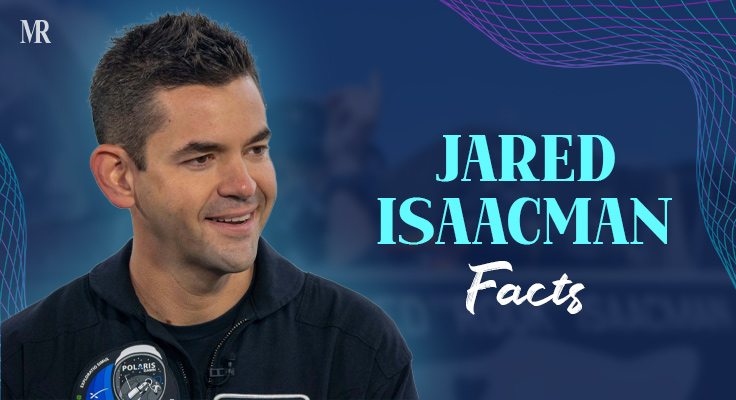In today’s fast-moving world, building a product isn’t enough. Winning the market means crafting a GTM (Go-To-Market) strategy that moves fast, speaks clearly, and adapts even faster—but doing that manually? It’s slow and messy. That’s where AI tools step in—and two names lead the race: Google Gemini vs ChatGPT.
Both tools are powerful, but in very different ways.
ChatGPT is like your creative strategist. It turns raw thoughts into polished plans. It thinks deeply and helps shape your message.
Google Gemini is your smart assistant. It moves with speed, plugs into your Google tools, and brings live data to every decision.
So which one should you use for your GTM workflow?
This guide will walk you through each GTM stage—from market analysis to sales to feedback loops—and compare both tools. You’ll learn where each shines, when to combine them, and how to make your GTM smarter than ever.
GTM Stage 1: Market & Competitor Analysis
When you’re entering a market, the first step isn’t building the product—it’s understanding the ground you’re stepping on. GTM Stage 1 focuses on this exactly: competitor research, market sizing, customer needs, and positioning. And in this digital era, two AI tools—Google Gemini vs ChatGPT—stand out as strategic allies.
ChatGPT acts like a research strategist. It’s ideal for turning unstructured ideas into structured insights. Feed it industry reports, notes from sales calls, or even raw text, and it can:
- Build detailed SWOT analyses for any competitor
- Design competitive matrices
- Summarize industry trends
- Craft a tailored, unique value proposition (UVP) based on the gaps it identifies
Use prompt engineering like:
“Act as a GTM strategist. Analyze the EdTech SaaS market. Create SWOTs for the top 3 competitors and a standout UVP.”
Now, switch focus to Google Gemini. It doesn’t just analyze — it reacts in real time. You can:
- Upload an earnings report, and it instantly highlights financial shifts
- Ask it to review a graph or a slide, and it reads the image for trends
- Track real-time competitor sentiment from news, social media, or Reddit
- Pull direct source links for credibility
In the Google Gemini vs ChatGPT face-off for GTM Stage 1, ChatGPT provides deep strategic thinking. Gemini adds speed and real-time context. Used together, they’re unbeatable.
GTM Stage 2: Ideal Customer Profile (ICP) & Messaging
Once you know your market, the next step is knowing your customer. In GTM Stage 2, you define your Ideal Customer Profile (ICP) and craft the right messaging for them. Here’s where the Google Gemini vs ChatGPT comparison becomes especially useful.
Let’s begin with ChatGPT. It’s like a storytelling expert and psychologist rolled into one.
- You can ask it to create full persona sheets based on your target industries or use cases
- It humanizes data and builds narrative-driven buyer profiles
- It also simulates responses from these personas to test your messaging
Try this prompt for high value:
“Act as Sarah, a 35-year-old VP of Product at a fast-growing HR Tech startup. Here’s our value proposition—does it resonate with your pain points? Give honest feedback.”
This level of interaction helps refine tone, message clarity, and emotional hooks—fast.
Now, enter Google Gemini. It’s your data detective. You can:
- Paste customer reviews or survey responses into it
- Upload CRM exports or Google Sheets with job titles and challenges
- Ask it to spot recurring themes, frustrations, and decision-maker roles
Perfect for creating executive-ready ICP summaries.
Gemini’s tone is factual, crisp, and built for stakeholder decks.
When it comes to Google Gemini vs ChatGPT in ICP and messaging, ChatGPT brings empathy. Gemini brings evidence. Together, they help you talk to the right customer in the right way.
GTM Stage 3: Content Creation & Channel Strategy
Once your customer profile is clear, the next step is telling your story—across the right channels. This is where content creation meets distribution strategy, and in this stage, the Google Gemini vs ChatGPT debate becomes highly relevant.
Let’s start with ChatGPT. It’s a content powerhouse.
- It writes complete blog posts, whitepapers, and email sequences
- It can generate 10+ ad copy ideas in seconds
- It adapts tone based on audience—formal, friendly, or playful
- Great for social media campaigns that need a human touch
Prompt Example:
“Generate a full blog post outline for a SaaS product launch targeting small retail businesses. Include intro, sections, CTA.”
Or
“Give me 5 ad copy variations for Facebook promoting a new productivity app.”
Now, turn to Google Gemini. It fits right into your workflow:
- Works inside Google Docs, Sheets, and Slides
- Can suggest real-time SEO improvements while you write
- Great for meta descriptions, headers, or rewriting weak sections
- Integrates with Google’s own search data insights
Ask Gemini inside a Doc:
“Rewrite this paragraph for clarity and SEO.”
“Suggest a meta description under 140 characters.”
In the Google Gemini vs ChatGPT comparison for content and channels, ChatGPT handles volume and creativity. Gemini ensures precision and placement. Used together, they build content that ranks and resonates.
GTM Stage 4: Sales Enablement & Automation
In sales, speed and personalization matter most. GTM Stage 4 is where sales teams need content, tools, and automation that help them close faster and smarter. Comparing ChatGPT vs Google Gemini here highlights how both AI tools support—but in very different ways.
Let’s start with ChatGPT. Think of it as your sales scriptwriter.
- It writes cold emails, follow-up sequences, and objection-handling replies
- Its adaptive tone makes every email sound human, not robotic
- Ideal for building sales playbooks based on industry, persona, and use case
Try this prompt to experience its nuance:
“Write a cold outreach email to a CFO at a mid-sized fintech company. Focus on reducing compliance overhead by 30%.”
Now compare that to Google Gemini, which leans into automation and speed:
- Integrated with Gmail, Calendar, and Meet
- Can summarize sales calls, identify action items, and draft follow-ups instantly
- Works inside Google Workspace tools to boost workflow
Use-case prompt for:
“Summarize the action items from my last meeting with Sarah Gupta at AlphaBank and draft a follow-up email confirming next steps.”
Quick Comparison:
- ChatGPT = Creative, tailored messaging
- Gemini = Task automation and meeting intelligence
In the Google Gemini vs ChatGPT face-off for sales enablement, ChatGPT brings voice. Gemini brings velocity. Together, they create a sales engine that’s both personal and productive.
GTM Stage 5: Feedback Loops & Optimization
Once your GTM motion is live, the real work begins—learning and improving. GTM Stage 5 is about gathering feedback, analyzing what’s working, and optimizing fast. In this stage, the Google Gemini vs ChatGPT comparison helps decide how to act on user signals with speed and accuracy.
ChatGPT shines in interpreting feedback with nuance.
- It can read through long support tickets, review comments, or survey answers
- Helps convert raw feedback into user insight
- Can rewrite landing page copy or product messages based on pain points
- Great for summarizing themes from qualitative data
Try this practical prompt:
“Analyze the following 20 customer reviews and summarize top complaints, suggestions, and recurring praise.”
You’ll get a human-like, structured summary in seconds. ChatGPT can even suggest next steps: what to fix, what to double down on, and what to change in your pitch.
Google Gemini, on the other hand, is your speed analyst.
- Paste survey data from Google Forms into Sheets
- Ask Gemini to highlight sentiment trends and recurring issues
- Get SEO or product content suggestions based on real-time feedback
- Use its integration to auto-update Docs or Slides with those insights
Gemini workflow idea:
“Review this Sheet of feedback responses and summarize common complaints by user role.”
In summary, for feedback loops and optimization:
- ChatGPT = Deep listener and message shaper
- Gemini = Fast analyzer and real-time optimizer
Together, they build a smarter GTM loop that never stops learning.
Google Gemini vs ChatGPT – Who Wins the GTM Race?
Go-to-market success isn’t just about speed—it’s about making the right moves at every stage. From research to outreach, content to feedback, each phase demands different tools. And that’s where the ChatGPT vs Google Gemini conversation becomes powerful—not as a competition, but as a collaboration.
Here’s the breakdown:
- GTM Stage 1: Market & Competitor Analysis
ChatGPT provides structured strategic frameworks, while Gemini brings in real-time competitor insights.
- GTM Stage 2: ICP & Messaging
ChatGPT creates deep persona-driven narratives. Gemini extracts pain points from live CRM or feedback data.
- GTM Stage 3: Content Creation & Channel Strategy
ChatGPT is your content machine—blogs, social posts, ad copy. Gemini aligns that content with SEO and integrates into your workflow.
- GTM Stage 4: Sales Enablement & Automation
ChatGPT writes personalized sales content. Gemini automates follow-ups, meeting summaries, and action items across Google Workspace.
- GTM Stage 5: Feedback Loops & Optimization
ChatGPT interprets feedback and shapes messaging. Gemini processes survey data and drives real-time adjustments.
So, who wins?
In truth, you do—if you use both right.
ChatGPT gives you strategy, empathy, and language.
Gemini gives you speed, structure, and systems.
Together, they turn your GTM plan from good to unbeatable.
Key Takeaways
A go-to-market plan is never linear. It evolves, just like the product and the people behind it. So when comparing Google Gemini vs ChatGPT, the real question isn’t which is “better”—it’s about what kind of work you need done, and how fast.
If the goal is deep strategy, brainstorming, and building narratives that resonate, ChatGPT often brings more clarity. It doesn’t just write—it helps think. And in GTM, thinking is half the battle.
But when execution demands speed, data, and seamless integration into existing workflows, Gemini takes the lead. The ability to work inside Google Docs, Sheets, and Gmail without context-switching saves more time than most realize—especially at scale.
That said, no AI tool can replace human intent. These tools amplify direction—they don’t create it.
Looking ahead, the smartest GTM teams won’t pick just one. They’ll combine Gemini’s speed with ChatGPT’s strategy, blending automation with narrative. The future of GTM isn’t either/or—it’s knowing how to use both tools at the right moment.
And that’s where the real edge lies.












